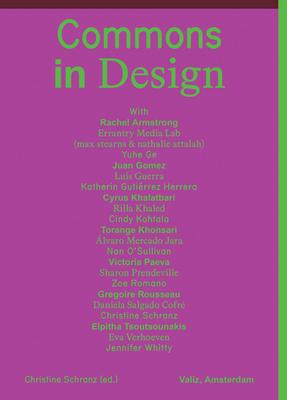How social cooperation within communities can better the impact of functional, sustainable design
The scarcity of resources, climate change and the digitalization of everyday life are fuelling the economy of swapping, sharing and lending: all of which are in some way linked to a culture of commoning. In this context, commons can be understood as community-based processes that use, collectively manage and organize generally accessible resources, either goods or knowledge.
Commons in Design explores the meaning and impact of commons--especially knowledge-based peer commons--and acts of commoning in design. It discusses networked, participatory and open procedures based on the commons and commoning, testing models that negotiate the use of commons within design processes. In doing so, it critically engages with questions regarding designers' positionings, everyday practices, self-understandings, ways of working and approaches to education.
Contributors include: Rachel Armstrong, Max Stearns, Nathalie Attallah, Yuhe Ge, Juan Gomez, Luis Guerra, Katherin Gutirrez Herrera, Cyrus Khalatbari, Rilla Khaled, Cindy Kohtala, Torange Khonsari, lvaro Mercado Jara, Nan O'Sullivan, Victoria Paeva, Sharon Prendeville, Zoe Romano, Gregoire Rousseau, Daniela Salgado Cofr, Elpitha Tsoutsounakis, Eva Verhoeven, Jennifer Whitty.
